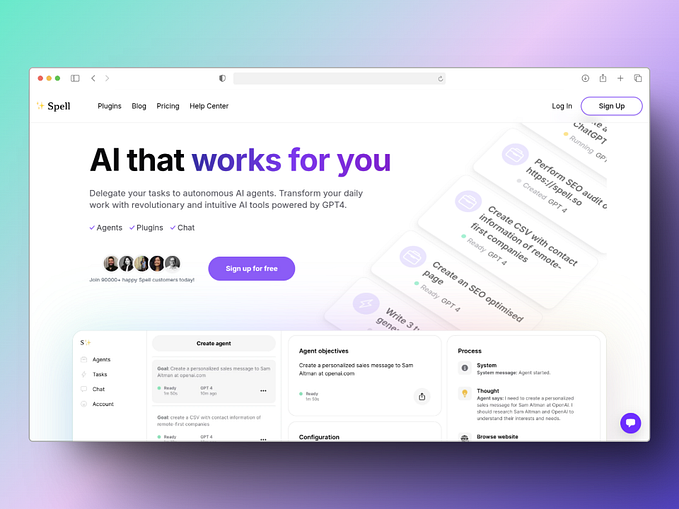TSB 2020 Fireside Chat: Meet Your Match — Fundraising in the COVID-19 Landscape
From the Term Sheet Bootcamp, there are some contents from the fireside chats that we think might be useful for the wider startup audience out there. We’ll be organizing and sharing them with you in the following weeks.
How were the results to Meet Your Match?
Bryan: The Meet Your Match program started because we want our own portfolio companies to meet with new investors under COVID-19. And then we thought if we’re going to do the matching already, why not extend it to other startups as well? The first stop was Thailand, we onboarded 30 to 40 investors before launching. After a week, we expanded it to the rest of Southeast Asia — we collaborated with Bobby for Vietnam and Plug And Play for Singapore and Indonesia. In all, we launched it in seven countries — Singapore, Malaysia, Vietnam, Thailand, Indonesia, Taiwan, and Korea. More than 700 startups signed up. In total, we onboarded close to 150 investors and 50% of the startups got at least one match, with the majority from Indonesia and Vietnam. The program ensured continued engagement with investors even under times of crisis like COVID-19 when face to face meeting is not the best option. It also allowed the entire ecosystem to continually move forward even in the midst of a crisis. The investment scene might have slowed down as investors are not as quick to pull the trigger, but it’s always good to keep the relationships warm because when the situation turns for the better, startups will be best equipped to take advantage of the situation and go straight into fundraising.
Bobby: In Vietnam, almost 130 startups joined and more than 85 got matched. Thanks to Meet Your Match — Vietnamese startups gained a lot of exposure.
Leroy: When we launched the program in Taiwan, we received very little response initially. Taiwanese startups are less receptive or shy. We got a lot of feedback like “we’re not sure if we’re ready or not”. It’s never a bad thing to be exposed to investors. Fundraising is like dating, marriage doesn’t just happen overnight — the same goes with investments. Allow the investors to get to know you.
Interest in Philippines startups?
Amy: Philippines is one of the countries we look at, but at the moment, we are not focused on the Philippines market. The reason being, most of the graduates in the Philippines choose to go with the traditional career path and not very keen on starting their own businesses, which is quite different from the other countries. There are a few industries we are interested in exploring in the Philippines market — e-commerce, logistics, F&B.
Any suggestions to startups to prepare themselves as a lot of these investor meetings are going online?
Bryan: Online meetings don’t differ much from traditional pitching, the only difference is that it’s online instead of face to face. Investors will still ask the same questions such as “what is your business”, “what is your traction”, “where are you targeting”, “what’s your valuation”. Would advise startups to prepare just as much. Not sure if it’ll become the new norm in the future, but maybe initial meetings will mostly take place virtually and if investors would like to explore further, in-person meetings will be held.
Bobby: Think what’s effective for pitching online — what kind of numbers do you want to show to impress the panel of VCs. When pitching live at an offline event, it’s very much of a performance of showing how charismatic you are on stage, and how well you can speak to impress the listeners. However, attention span is relatively short when it comes to online pitching. Would recommend focusing on your data! Data is highly critical for the investors to take a second look at you. Don’t use paragraphs, highlight the key points. If you’re talking about revenue, put the word “revenue” and a huge number. If you discovered a secret sauce in the past few months since the sprout of the virus that helps you overcome difficulties — you’re more likely to get listeners’ attention, because it means you’re prepared to overcome potentially other crises. There are 600 billion dollars worth of funds that need to be deployed and it has to go somewhere. That’s a given.
Under COVID-19, are there specific industries you’re interested in? What about projects focused more on purpose instead of profit-making?
Amy: we cannot travel to meet teams in person during a time like this, so we focus a lot on companies that provide digital solutions because we can assess the product, interview the teams and get customers’ feedback all online. Another sector would be telemedicine as we see a rising demand for remote diagnosis. Other SaaS businesses, or companies that provide tools to facilitate remote working or remote learning, is what we believe in as the new norm.
Even before COVID, JAFCO ASIA only focused on companies with sustainable business models. We are not very keen on companies that burn a lot of money in order to achieve high growth in terms of users or revenue. One of the key metrics we look at is gross profit — will the company be able to scale sustainably not from the cost/funding of the investor. We don’t think a company will go far if they don’t focus on profit-making in the long term.
Any common mistakes you see in startups’ pitch?
Bobby: You should have multiple versions of your deck. If today you’re sending in a deck for people to read, then details are important but still needs to be concise. When you’re pitching it’s a completely different case — it’s a show of how well you know what you’re doing, how you relate to the story. Big numbers! Investors can tell how well you’ve got the ideas on your fingers. It’s not bad to have details, just a matter of having them in the right context and applications.
Amy: Oftentimes startups don’t clearly illustrate the pain point they’re trying to solve. When we look at companies we consider whether customers are willing to pay for the solutions. If you’re not solving any pain points, it’s hard to convince investors that your business model will work and customers will pay to use your solutions. The second key metric is the financial aspect, oftentimes founders come into meetings talking about their companies but can’t answer questions like their revenue for the past 12 months or about gross profit or cash balance — will need to revert to CFOs or sometimes even the CFOs don’t have the most up-to-date numbers. Avoid these situations to make better impressions!
Leroy: Technical founders tend to focus only on product development. Keep in mind, coming from a PhD or engineering background does not give you the right to say that you don’t know anything about the financial background. If you’re running a startup and you’re the CEO, know your numbers. Your job is to sell your company to anyone you encounter.
Bryan: Know the financials off the back of your head! Bad impressions won’t get you second rounds of interviews. Founders that are engaging who can tell good stories keep the investors captivated, wanting to learn more with a follow-up round.
Any last words of advice to the startups?
Amy: Make sure you focus on the customers as most of the time companies don’t pay enough attention to the customers. Keep in mind they are the ones paying for your service and generating revenue for your company.
Jielun: Two things — first, fundraising is like dating, it’s all about relationship-building. You cast the net and see who’s interested. Be persistent. It’s the followup that will lead to something happening. Second, due to COVID-19, most of these meetings turned virtual, which lacks face-to-face interaction. A lot of times because you’re pitching through the camera, both parties can’t read the room; thus, it might be a good idea to actually over-exaggerate your tone, display your passion a little bit more to give the investors more impact.
Leroy: Reach out to as many investors as possible, even if it’s just getting feedback. The worst thing startups can do is to just ask for the feedback. “This is my pitch, what do you think” — what do you mean? Be specific! Startups like to practice the same pitch over and over again. That is pointless. Think about how you are going to do it differently next time. You don’t need a pitch to prove yourself correct. It’s not about presenting to win an argument, but to present the story better. If you’re preparing to fundraise, make sure you establish your online presence through platforms like LinkedIn and Crunchbase — so the overseas investors get to see you.
Bobby: A good method for founders is to do research into VCs and group them into two groups — Group B you’re not likely to get investments from them but can use them as practice, in that way you won’t get disappointed mentally if they don’t invest in you. In Group A are the real potential investors that have invested in similar portfolios as your company. You can’t just live on one deck — marketing deck, pitch for money deck, partnership decks; sometimes a combination of. Founders tend to use pitch decks from a month ago — that’s like a lifetime for startups, there’s got to be some changes. If no changes, it’s probably not right for you to build a startup.
Bryan: if you’re planning to fundraise, plan it way ahead in advance. In the midst of uncertain times right now, a typical fundraising process that used to take three to six months right now will take six to nine months or even longer. Ensure that you have sufficient runway, do not leave it to the last minute that you get yourself into cash problems. Make sure you can survive through the entire fundraising process.










